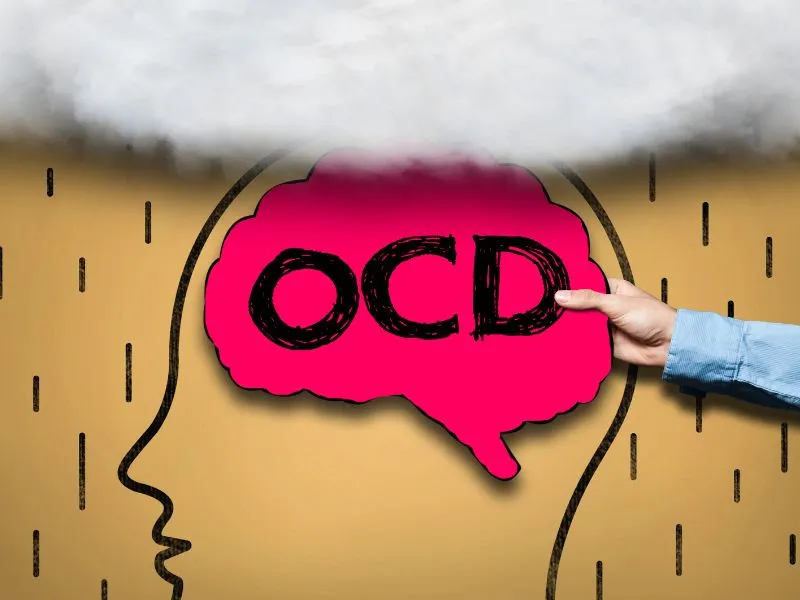OCD can be understood as a disorder in which people have recurring, unwanted thoughts, ideas, or sensations (obsessions). To get rid of the thoughts, they feel driven to do something repetitively (compulsions). The repetitive behaviors, such as hand washing/cleaning, checking on things, and mental acts like counting or other activities, can significantly interfere with a person’s daily activities and social interactions. The second week of October is celebrated as OCD awareness week every year to help educate people about the same.
How do you know if one has OCD?
Key Criteria for Diagnosing OCD:
- The Primary Sign of OCD: The presence of obsessive thoughts or compulsions.
- Time Commitment: The thoughts or compulsions should occupy more than one hour daily.
- Significant Distress: The individual must be experiencing substantial distress due to these thoughts or compulsions.
- Impairment of Functioning: OCD must interfere with their work or social functioning.
- Onset Age: OCD commonly initiates in childhood, adolescence, or early adulthood.
- Partial Symptoms: Some individuals may display certain OCD symptoms without meeting the complete diagnostic criteria.
The O in OCD: OBSESSIONS
O stands for obsessions which are recurrent and persistent thoughts, impulses, or images that cause distressing emotions such as anxiety, fear or disgust. The distress caused by these intrusive thoughts cannot be resolved by logic or reasoning. Most people with OCD try to ease the distress of obsessional thinking, or to undo the perceived threats, by using compulsions. Obsessional thoughts may be in the form of :
- Fear of contamination by people or the environment
- Disturbing sexual thoughts or images
- Religious, often blasphemous, thoughts or fears
- Fear of perpetrating aggression or being harmed (self or loved ones)
- Extreme worry that something is not complete
- Extreme concern with order, symmetry, or precision
The C in OCD: COMPULSIONS
Compulsions are repetitive behaviors or mental acts that a person feels driven to perform in response to an obsession. The behaviors typically prevent or reduce a person's distress related to an obsession temporarily, and they are then more likely to do the same in the future. Compulsions may be excessive responses that are directly related to an obsession (such as excessive hand washing due to the fear of contamination) or actions that are completely unrelated to the obsession. In the most severe cases, a constant repetition of rituals may fill the day, making a normal routine impossible.
Compulsive behaviors may take the from of following actions:
- Excessive or ritualized hand washing, showering, brushing teeth, or toileting
- Repeated cleaning of household objects
- Ordering or arranging things in a particular way
- Repeatedly checking locks, switches, appliances, doors, etc.
- Constantly seeking approval or reassurance
Can OCD be treated?
Yes OCD can be treated with different methods, for example:
- CBT (Cognitive Behaviour Therapy): One effective treatment is a type of cognitive-behavioral therapy (CBT) known as Exposure and Response Prevention (ERP). During treatment sessions, patients are exposed to feared situations or images that focus on their obsessions. By staying in a feared situation without anything terrible happening, patients learn that their fearful thoughts are just thoughts.
- Medication: A class of medications known as Selective Serotonin Reuptake Inhibitors (SSRIs), typically used to treat depression, can also be effective in the treatment of OCD.
Types of OCD
Although there are infinite forms of OCD, it has been traditionally considered that a person’s OCD will fall into one of these four main categories:
- Checking- The need to check is the compulsion, but the obsessive fear might be to prevent damage, fire, leaks or harm. Checking is often carried out multiple times, sometimes hundreds of times and might last for an hour or even longer.
- Contamination/Mental Contamination- The potential of getting dirty and contaminated is the obsessional worry, but the underlying fear is that contamination might cause harm to oneself or a loved one.
- Symmetry and Ordering-The need to have everything lined up symmetrically just ‘right’ is the compulsion, the obsessive fear might be to ensure everything feels ‘just right’ to prevent discomfort or sometimes to prevent harm occurring.
- Ruminations/Intrusive Thoughts- In the context of OCD a rumination is actually a train of prolonged thinking about a question or theme that is undirected and unproductive.
Subtypes of OCD may look like-
- Relationship OCD: Involves experiencing obsessive and compulsive thoughts related to a person's romantic relationship.
- Just Right OCD: Is driven by a general feeling that things are not quite right.
- False Memory OCD: Experience frequent doubting thoughts. For example, they might worry about things they may have accidentally done in the past.
Sensitivity towards OCD :
We often use the term “Oh I have OCD!” quite lightly in our daily lives, however we should refrain from using such terms so lightly since it is an injustice toward those who suffer from such a condition every minute of their lives.
Conclusion:
On the lines of OCD awareness week, it is important that we are informed of what OCD is and its numerous forms. Along with the treatment options available our aim should be to raise awareness and sensitivity towards those who have this condition and not degrade them by using these terms lightly.
At Solh, we recognize the significance of mental health, which is why we've curated a range of powerful self-help tools designed to enhance your mental well-being. Our offerings include journaling, goal setting, self-assessment tests, mood analysis, and an extensive library of enriching content for you to explore and learn from. Take charge of your journey towards personal growth and improved mental health with our comprehensive self-help resources.



